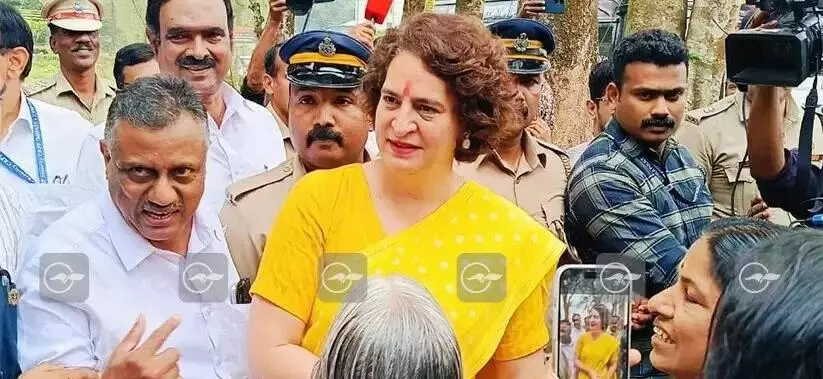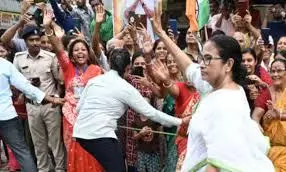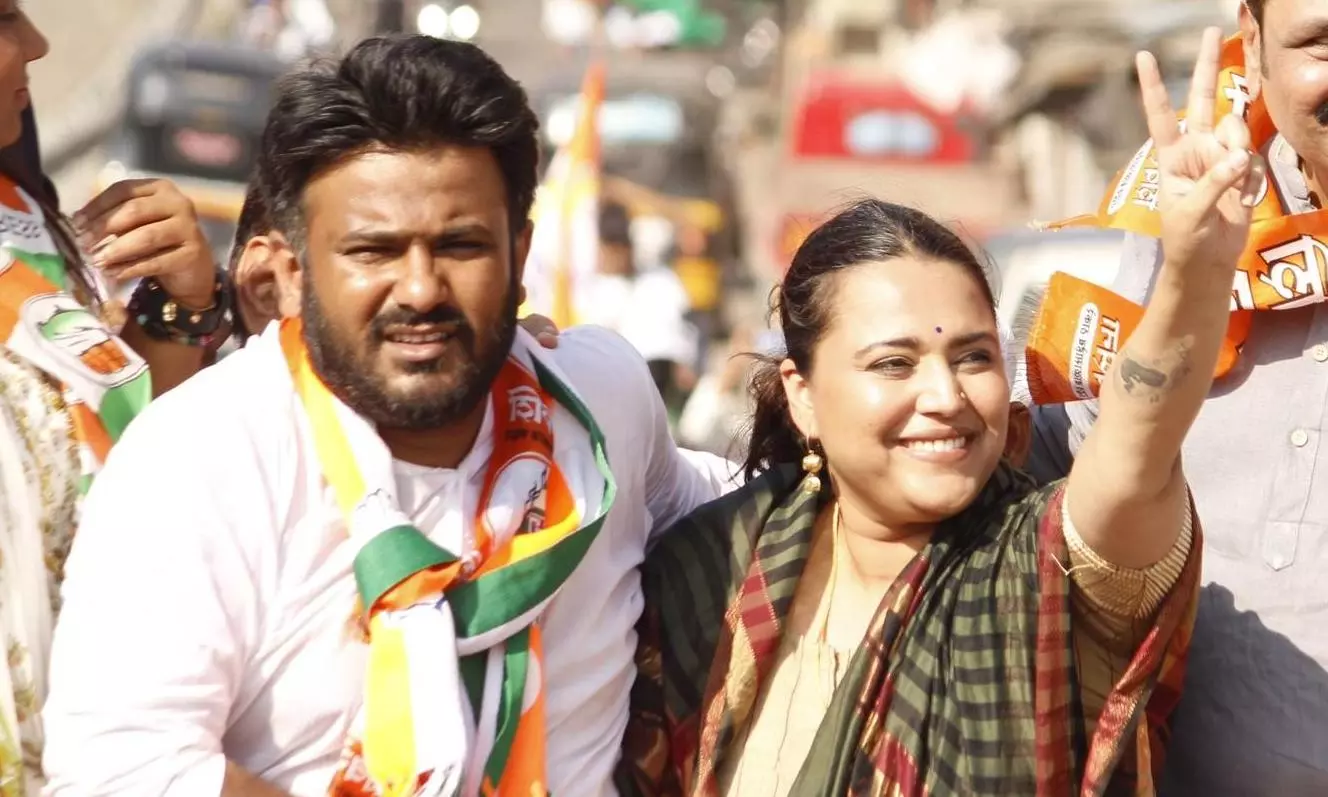
Political dimensions of people's verdict
text_fieldsThe results of assembly elections in Maharashtra and Jharkhand, by-elections to 46 assembly constituencies in 13 states and Lok Sabha by-elections in Wayanad in Kerala and Nanded in Maharashtra are out. Apart from the BJP's victory in Maharashtra giving continuity of rule to the present coalition, the results were not surprising and were expected to some extent. It would not be wrong to judge them as a continuation of the results of the recent Lok Sabha elections. While the Mahayuti won with a large majority in Maharashtra, confirming most of the exit poll results, the INDIA front retained power in Jharkhand, despite all the hate campaigns by the BJP and the Sangh Parivar. As for the by-elections, the outcome was such that it is unlikely to pave the way for a change of government or for any kind of political uncertainty. It is also worth mentioning that the Congress lost the Lok Sabha seat in Nanded; and in the assembly by-elections, while the Congress made gains in Karnataka and the BJP in UP. In West Bengal, the Trinamool succeeded in maintaining its virtual invincibility.
There are many lessons for both sides in this election; the political dimensions of concerns and expectations are also embedded in the results. Maharashtra was one of the states where the BJP and the NDA suffered a major setback in the Lok Sabha elections. The Mahayuti alliance won only 17 out of 48 seats. The Maha Vikas Aghadi (MVA), comprising the Congress, Sharad Pawar-led NCP, Uddhav Thackeray faction of Shiv Sena and the Left parties, won 30 seats with about 43 percent of the votes. The BJP, which had been the beneficiary of the split and defection of the Shiv Sena and the NCP, however suffered a setback in the Lok Sabha. The fact that it lost 17 out of the 28 seats it contested was considered the biggest achievement of the INDIA. Naturally, a similar performance was expected from the INDIA alliance, especially in the context of the prevailing anti-incumbency sentiment prevailing against the Mahayuti.
However, the Mahayuti blew away all those expectations and has achieved a historic victory. Interestingly, they still got oly the same vote share as the Mahayuti and the BJP won in the Lok Sabha elections. However, when it comes to the number of seats, the BJP is close to an absolute majority on its own. This is a repeat of the Haryana election results that came a month and a half ago. There too, despite getting the same vote share in the Lok Sabha elections and the Assembly, the Congress lost seats. The same trend was seen in Madhya Pradesh and Rajasthan earlier. Congress leaders had said that it would not be repeated in Maharashtra. However, it happened in Maharashtra too: once again, the Congress and the India Front were helpless in the face of the NDA's 'micro-planning' in the elections.
This mistake did not happen in Jharkhand. There, the JMM, led by Hemant Soren, defended it robustly. As a result, they won more seats too. During this election season, the BJP unleashed the utmost hate campaigns in Jharkhand. What the BJP raised there were overt slogans of Hindutva by raising issues like Uniform Civil Code, NRC, and infiltration. However, Jharkhand rejected that hysterical politics; instead, it strengthened the secular party even more. The lesson of Jharkhand is that saffron politics can only be overturned by the secular segment if it stands united and with the right planning. It is this fact that also makes the India alliance more relevant in the current political scenario. However, the message given by Maharashtra is that its leaders have not fully embraced it.
Kerala witnessed a completely different election campaign this time, especially in Palakkad. When sitting MLA Shafi Parambil came to contest from the Vadakara Lok Sabha constituency, the Left had alleged a ‘Congress-BJP deal’. The gist of the allegation was that Shafi would win in Vadakara by buying the BJP’s votes and in return, the Congress would help the BJP in Palakkad. In the run-up to the by-elections, this allegation gained weight. On the other hand, the Congress also alleged a ‘BJP-CPM deal’. In the meantime, clearly communal remarks were made even by responsible leaders.
The Left made some over-the-top statements. From controversial advertisements published in two Muslim-run newspapers to extreme communal statements that alienate religious minorities, such incidents have never happened before in the election campaigns in Kerala. The Left leaders were heard trying to divide the people on religious lines for the sake of a paltry number of votes. The beneficiaries of this are naturally the BJP. But the voters, who were seized of this reality, were vigilant enough in recognizing the reactionary communal agenda and enabling the secular candidate win. The secular force of Kerala can be said to have once again warded off communal politics. The CPM can take solace in the fact that it has been able to retain the Left stronghold of Chelakkara. Even then, the Left and its rival UDF alliances are equally bound to answer the question how the BJP secured about ten thousand more votes there. In Wayanad, Priyanka Gandhi's victory is historic despite a very low turnout. The hope is that Priyanka will become a strong voice of the opposition in Parliament, alongside Rahul Gandhi and other INDIAN leaders, starting with the imminent winter session.

























